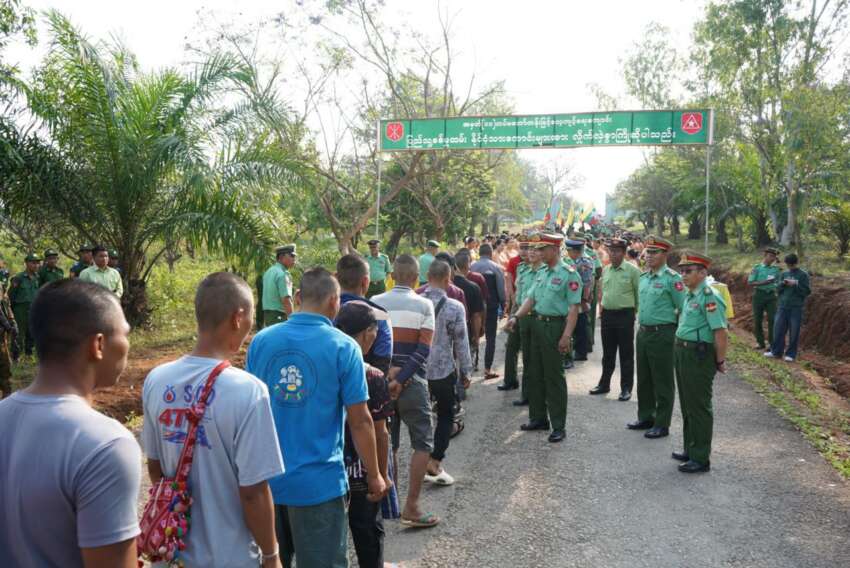
A recent incident in Yangon’s Hlaing Tharyar Township has exposed another case of the military council’s deceptive recruitment tactics, where two young men were lured by false promises of security jobs and subsequently forced into military service. The victims, Maung Zaw Htet Lin and Maung Ye Naung, both 25 years old from Thanatpin Township in Bago Region, responded to a job advertisement promising a monthly salary of 510,000 kyats for security work at the Shwe Lin Ban Industrial Zone. The attractive salary offer led them to travel to Yangon to pursue what they believed was a legitimate employment opportunity.
The two young men arrived in Hlaing Tharyar on May 4, after which they lost all contact with their families. Their mobile phones became unreachable, causing immediate concern among their relatives. It was later revealed that they had been picked up by two men in civilian clothes on motorcycles, who then transferred them to a hired vehicle and transported them to the Danyin Gone military recruitment center in Insein Township. Their mobile phones were confiscated upon arrival at the facility, effectively cutting off all means of communication with the outside world.
It wasn’t until May 8 that the young men managed to contact their families by paying to use a soldier’s phone at the recruitment center. They informed their families that what was initially presented as security training had turned into mandatory military service, with no option to refuse. They are scheduled to attend Military Training Course No. 13, which will commence this month. Prior to their recruitment, the young men had been required to submit their personal information and photographs via Viber, indicating a premeditated plan to recruit them into military service.
Friends of the victims have issued warnings about the need for extreme caution regarding high-paying job offers advertised online and through leaflets, particularly those related to security positions. This incident highlights the military council’s ongoing practice of using various deceptive methods to forcibly recruit young people into military service. The case serves as a stark reminder of how the military council continues to exploit economic vulnerabilities to bolster its forces, often targeting young people seeking legitimate employment opportunities in Myanmar’s challenging economic environment.



